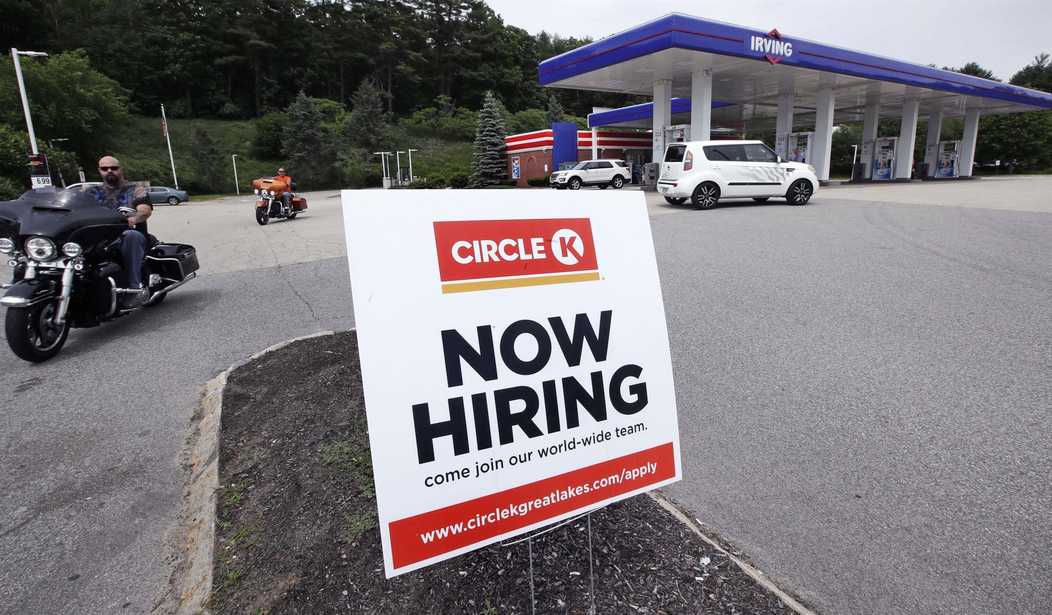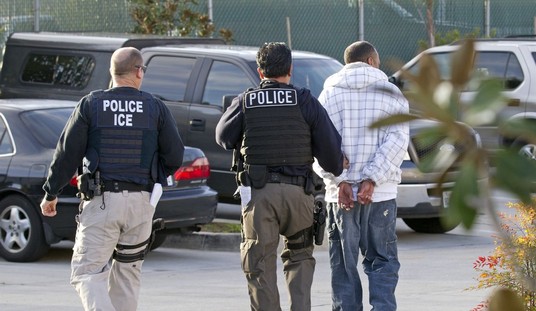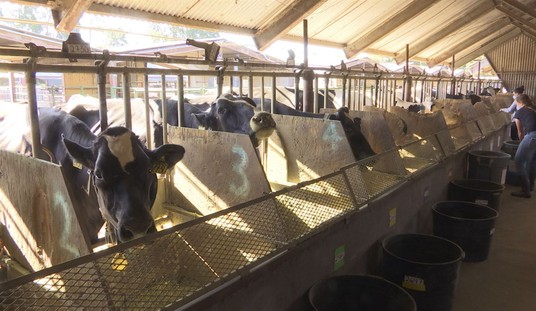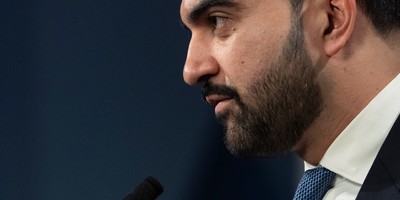Like a lot of other Americans, I have been shocked in recent weeks at the number of businesses that cannot find workers. My daughter and I stopped at a fast-food restaurant here in South Bend, Indiana, two weeks ago on our way home from Chicago. After waiting 40 minutes in the drive-thru line, the beleaguered employee at the window handed us our food and apologized profusely. "I'm so sorry. We are way understaffed," he explained. "I have to close the store." This was 5:30 on a Saturday evening. How much money did that particular store lose, having to close for lack of staff in the middle of the dinner hour on a weekend night?
In South Bend and the surrounding areas, it seems like every store, every restaurant, every retail establishment of any kind is advertising for workers. And it's the same story across the country. Last week, my family and I drove to Mississippi for a family wedding. We saw "Help Wanted" signs everywhere on the trip and at our destination. When I joined a good friend at her country club for lunch, she described a similar situation there: The club desperately needs wait staff and cannot find help.
The availability of jobs should be good news, and in some respects, it is. The country is pulling out of the horrible COVID-19 pandemic, and those businesses which did not go under as a result of the lockdowns have reopened and are once again serving customers and clients. At the same time, they cannot get back to normal without employees, and from small towns to big cities, businesses are struggling to find them.
It's possible that some people remain concerned about returning to the workplace, fearing the coronavirus, notwithstanding the widespread availability of vaccines. But an equally likely cause is the money that has been flowing from the federal government to unemployed Americans. Those payments were originally intended to help workers who lost jobs as a result of the COVID-19 lockdowns, and they were much needed in 2020. But even last year, in the throes of the lockdowns, we were being warned that many workers in the retail, hospitality and restaurant segments of the economy were going to be making more money with the federal income supplements than they would when -- or if -- they returned to work.
Recommended
Those are exactly the workers whose absence is being sorely felt now.
The continued insistence on making payments feels very much like a test run for "Universal Basic Income," or "UBI" -- a monthly check sent to every adult from the federal government. UBI is an idea that has gained popularity since the COVID-19 lockdowns shuttered so many businesses. Indeed, New York mayoral candidate Andrew Yang has been pushing for UBI since his 2020 presidential run.
Professors Melissa Kearney and Magne Mogstad wrote a straightforward article in Business Insider in 2019, explaining why UBI would fail to achieve any of the goals its advocates tout: It would not eliminate income inequality, raise stagnating wages or offset the impact of jobs lost to automation. And it would likely bankrupt the government.
But the federal government's payments during the COVID-19 lockdowns have provided concrete evidence of additional reasons why UBI would be economically disastrous: If you pay people not to work, many will not work. The lost capacity for human growth and development when people do not have gainful employment is immeasurable. What is measurable is the economic loss; our businesses cannot grow without employees.
We now know that one of the greatest determinants of economic development in any country is not just business creation, but business growth. In other words, without workers in front-facing jobs in food services, hospitality and retail, hundreds of thousands of enterprises will stagnate, and take the economy with them. As much as everyone thinks "high-tech" drives the economic bus in the United States (and elsewhere), neither our economy nor our society writ large can survive on Facebook, Apple, Google, TikTok and YouTube. We need restaurants, grocery stores, plumbers, car mechanics, roofers, electricians, dentists and innumerable other businesses. And those businesses need employees.
Politicians in general (and Democrats in particular) are infamous for promoting policies that sound good, without regard to the negative consequences. Classic examples are welfare -- part of the "War on Poverty" -- which has done catastrophic damage to the Black family while doing virtually nothing to lift people out of poverty, and closing mental hospitals, which had had the decidedly uncompassionate effect of throwing hundreds of thousands of mentally ill and drug-addicted Americans out on the streets. The New York Times wrote -- in 1984! -- that the decision to close mental hospitals was a terrible mistake. And yet here we are, 37 years later, still suffering the aftermath of those policy decisions.
Bad policy is often wrapped in unassailable terms like "compassion." This is a cheap ploy to avoid having the difficult conversations about the long-term desirability of whatever is being called for; who wants to be seen as uncompassionate? But no analysis of any policy is complete without taking human nature into account, and the incentives and disincentives created by whatever laws or regulations are being sold as the latest cure-all for deeply difficult societal problems.
We've been taken in by gladhanding politicians and "experts" enough times that we should know better. Americans must look past the sales pitch and consider the actual effects of any policies activists are clamoring for.
The checks from the federal government served their purpose. It's time to cut them off, bury the idea of UBI and let Americans get back to work.

























Join the conversation as a VIP Member